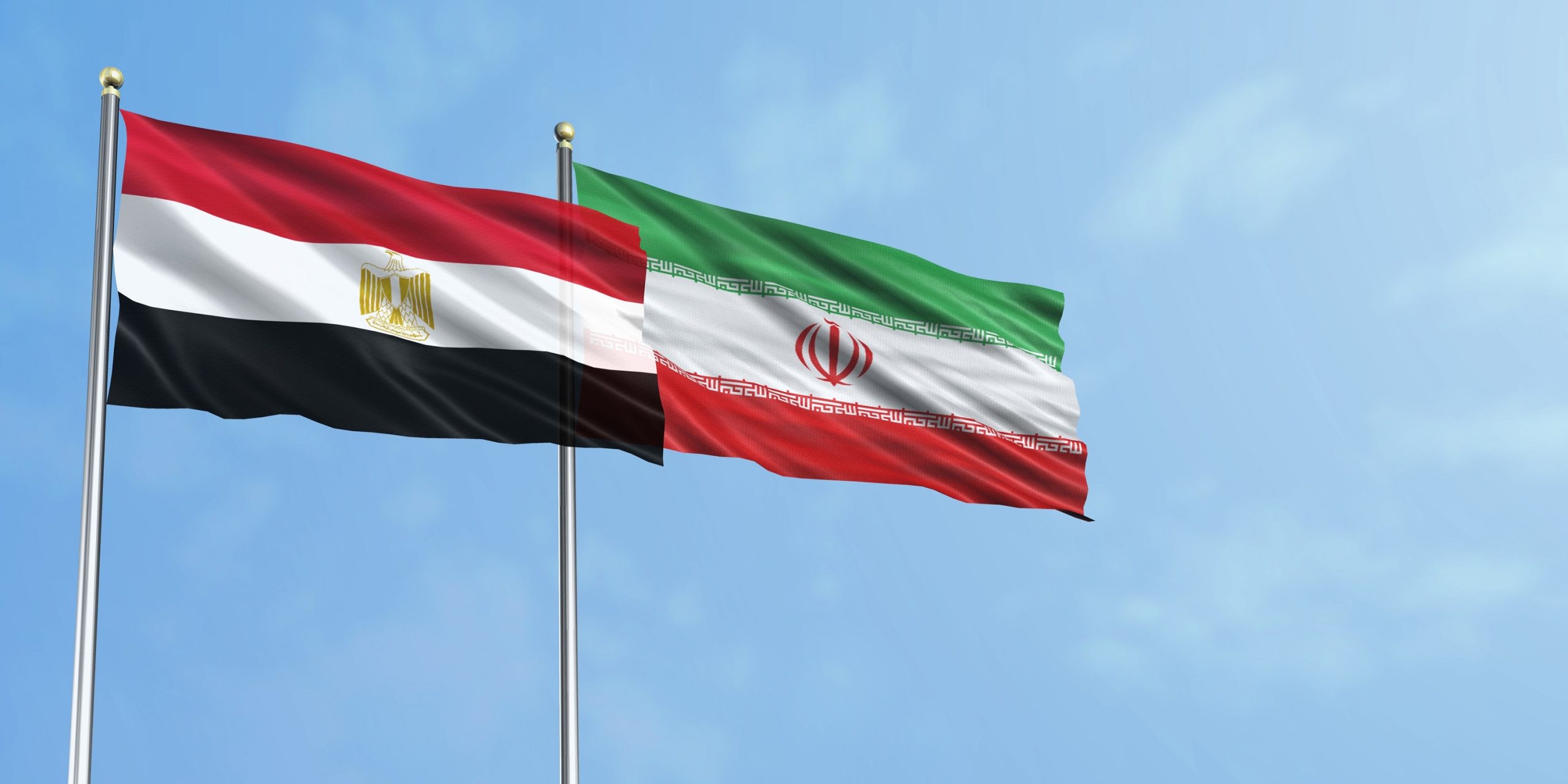Publications
INSS Insight No. 1743, June 29, 2023
Egypt and Iran have recently been discussing the possibility of normalizing diplomatic relations between them for the first time since 1979. This historic move may serve various interests of both countries, yet there are still some reservations, especially on the part of Cairo. Egypt is currently reviewing the nature of the change in Iran’s conduct following its normalization with Saudi Arabia in April 2023, and has been attentive to the views of the Gulf states and the Unites States regarding possible moves moves. Normalization between Cairo and Tehran would not necessarily be detrimental to Israel, as it may benefit vital Israeli political, security, and economic interests. However, it might also harm other interests. Therefore, Jerusalem must form its opinion on this issue based on specific parameters and conduct a dialogue with Cairo, particular Gulf states, and Washington in an attempt to influence the process.
There have been reports and assessments in recent months concerning potential normalization between Iran and Egypt, following a decades-long rift. In June 2023 it was reported that the two countries had reached a preliminary agreement regarding the establishment of a joint committee to discuss the restoration of diplomatic relations and coordination on security issues. The normalization is expected to include the establishment of full diplomatic relations, an upgrade of the interests offices in both countries, and a summit of the respective foreign ministers or presidents.
Iran's Supreme Leader, Ali Khamenei, and senior Iranian officials have publicly expressed their hopes for the renewal of bilateral diplomatic ties. On the other hand, Egypt has, so far, remained relatively silent on the matter. In a rather rare reference to the reports, Egyptian Foreign Minister Sameh Shoukry commented that they were mere “speculations,” but added that Egypt has been closely monitoring the normalization processes between Iran and the Gulf states, and that it does not rule out a change in its traditional approach toward Tehran if and when it proves to be beneficial.
The Iranian-Egyptian dialogue is currently underway amidst a period of “regional detente,” marked by the resumption of diplomatic relations between Saudi Arabia and Iran this past April. Cairo has welcomed the Saudi-Iranian normalization, but it is still assessing the potential impact of this development on Iran’s stance regarding various regional issues.
Historical Background
The diplomatic rift between Egypt and Iran dates back to the early days of the Islamic Revolution in 1979, when President Anwar el-Sadat provided refuge to the deposed Shah. Another source of tension between the two countries lies in the Islamic Republic’s objection to the peace agreement between Israel and Egypt. Following the assassination of Sadat in 1981, the assassin Khalid al-Islambuli became a hero in Iran, with the revolutionary regime naming a street after him and issuing a postage stamp in his memory.

Under the reformist president Mohammad Khatami (1997-2004), relations between the two countries experienced limited improvement. However, Iran continued to support radical Islamist groups acting against President Husni Mubarak. Further improvement was recorded following the rise to power of the Muslim Brotherhood government in Egypt in 2012, but it was short-lived, mainly due to the new government’s support for the uprising against the Assad regime in Syria.
During the first ten years under Abdel Fattah el-Sisi, the relations between the two countries remained rather cold, albeit without any deep crises. Unlike its Gulf allies, Egypt has considered Iran a secondary and distant threat to its national security, in contrast to radical Islamist organizations, which are perceived as a major and much immediate threat. Despite being resentful of Iran’s nuclear buildup, regional proxies, and increasing influence in the Arab world, Egypt still views the Muslim Brotherhood as its primary and direct adversary.
The currently emerging thaw in relations is the result of contacts held over the last two years, which included a conversation between el-Sisi and the Iranian Foreign Minister during an international conference in Baghdad in August 2021, a meeting between the Egyptian Intelligence Minister and the Iranian Vice President in November 2022, and interactions between intelligence delegations of both countries. The dialogue between the parties has gained momentum since last April, following the renewal of relations between Iran and Saudi Arabia, mediated by Oman and Iraq, which are also facilitating the talks between Cairo and Tehran.
Mutual Interests
For Iran and Egypt, normalization does not necessarily mean the elimination or resolution of all disputes between them, but rather pragmatic cooperation in pursuing shared interests, both bilateral and regional.
Iran regards the improvement of its relations with Egypt as an ongoing effort, especially by the current government in Tehran, to enhance its relations with Sunni Arab states, with a focus on Gulf states. This trend is perceived in Iran as an opportunity to strengthen its regional standing and enhance its deterrence against Israel. The renewal of relations with a major player in the Arab world like Egypt is undoubtedly seen by Tehran as a significant political achievement, signaling a shift in the regional balance of power in its favor. It also serves as an indication of increasing recognition of Iran's status by Arab countries, including those aligned with the pro-Western bloc.
For Iran, the improvement of its relations with the Arab world represents an opportunity to address regional developments that it views as problematic, such as the normalization between Israel and certain Arab states, as well as Israel’s efforts to forge an anti-Iranian regional coalition. In addition, Iran has a vested interest in improving its relations with Egypt, which could provide avenues for expanding its economic and trade ties in the region, including through the utilization of the Suez Canal and increasing its exports to Egypt. This aligns with Iran's “resistance economy” strategy aimed at bolstering its resilience against international sanctions by fostering greater trade with regional markets.
For Egypt, economic considerations play a significant role in shaping its policy toward Iran. There are several areas that offer potential economic benefits, including trade; Egypt seeks to increase the sales of its goods in the Iranian market. In terms of tourism, there is an opportunity to expand Iranian religious tourism to Shiite sites in Egypt and to southern Sinai; in March, Egypt announced eased entry visa requirements for Iranian tourists. In addition, Egypt is interested in participating in the reconstruction of Iraq and Syria, which are within Iran’s sphere of influence, with potential funding from the Gulf. In the energy sector, there is a potential for Iranian assistance in utilizing Lebanon and Syria for cooperation in gas production in the Eastern Mediterranean. Furthermore, Egypt aims to neutralize any elements that may spoil such cooperation, with a particular focus on Hezbollah. Egypt is also open to purchasing Iranian oil through Iraq, provided that US sanctions are lifted.
In the security realm, Egypt seeks Iran’s assistance in preventing hostile activities by the Houthis along the Bab-el-Mandeb strait and ensuring freedom of navigation in the Red Sea, particularly through the Suez Canal, which is a significant source of foreign currency income (with Egyptian revenues from the Canal amounting to $9.4 billion in 2022-2023). Egypt also expresses concerns about Iranian subversion in the Sinai Peninsula, which has already occurred. Reports in June 2022 indicated that Egypt warned Iran against targeting Israeli tourists in Sinai as a response to alleged targeted killings carried out by Israel. In addition, Cairo aims to prevent the Gaza Strip from becoming an Iranian base against Israel, and it seeks Iranian cooperation with its efforts to mediate between the Palestinian resistance factions and Israel, foster intra-Palestinian reconciliation, and prevent collaboration between terrorist groups in Gaza and the northern Sinai.
Challenges on the Way to Normalization
Egypt’s approach to normalization with Iran remains cautious and skeptical. Cairo’s initial assumption is that the rapprochement between Tehran and Arab states does not indicate a strategic shift in Iran’s regional ambitions, but rather, stems from cost-benefit calculations, which limit the scope and nature of agreements Iran is willing to make with its neighbors. The progress toward normalization will be influenced by two main factors.
The first factor is the success of the Saudi-Iranian attempt at normalization. In the past decade, Egypt refrained from significantly approaching Iran, considering its alliances with Saudi Arabia and the United Arab Emirates and the need to take their positions into account. Although the Saudi-Iranian normalization appears to legitimize a similar move between Egypt and Iran, it is viewed by some as a test of the nature of Iran's regional policy change. The outcome of this trial will determine whether a broader and deeper rapprochement between the Arab world and Iran is possible.
The second factor is receiving a green light from the United States. There is a prevailing sense in Egypt that Washington is currently prioritizing the conflict in Ukraine and its tensions with China, and that it does not oppose Arab-Iranian rapprochement, seeing it as a potential contributor to stability and calm in the Middle East. Nevertheless, Egypt would likely proceed with normalizing its relations with Iran only after ensuring that such a move would not harm its relationship with the Unites States, especially during times of economic distress when it relies on ongoing annual American economic aid and Washington’s support for international financial institutions, including the International Monetary Fund, which grants Cairo loans.
Recommendations for Israel
From an Israeli perspective, the normalization between Egypt and Iran is not a zero-sum game. The improved relations between the two countries do not necessarily come at the expense of the relations between Egypt and Israel or pose a threat to vital Israeli interests. Therefore, Jerusalem should assess the process objectively, based on its merits. Similar to Egypt, Israel has an interest in reducing tension in the region, strengthening security along maritime routes in the Red Sea, fostering cooperation in the gas sector in the Eastern Mediterranean, curbing the influence of Islamic Jihad and Hamas in the Gaza Strip, and mitigating terrorist threats originating from Iran and its regional proxies. Furthermore, Israel is interested in improving the economic situation in Egypt and strengthening its internal stability.
On the other hand, the strengthening of Arab-Iranian relations, including those between Egypt and Iran, presents certain challenges for Israel. It would aid Iran in alleviating its regional isolation, bolster its influence in the region, and potentially undermine the regional coalition formed through the Abraham Accords. This is partly due to the shared security threat posed by Iran. A healed Arab-Iranian rift, coupled with ongoing escalation between Israel and the Palestinians, could potentially delay the upcoming meeting of the Negev Forum, of which Egypt is a member, and refocus the Israeli-Palestinian conflict as a central issue on regional agenda.
There are additional, albeit less likely, threat scenarios that could arise from the Egyptian-Iranian rapprochement. These include the potential passage of Iranian ships smuggling oil, and or of even greater concern, weapons, through the Suez Canal. There is also the possibility of Iran solidifying its foothold in the Gaza Strip, which could disrupt the progress made in the recent years in the ties between Israel and Egypt. Moreover, the security cooperation between Cairo and Jerusalem may face challenges and strain due to these developments.
In conclusion, Israel is advised not to automatically oppose any form of Egyptian-Iranian normalization, but rather to ensure that it aligns with Israeli interests. To achieve this, Jerusalem should engage in dialogue with Cairo, as well as with Washington and its allies in the Gulf, in an effort to shape the regional trends of detente and actively participate in them. The recent improvement in the fields of security, energy, and tourism in the relationship between Israel and Egypt provide Jerusalem with a certain degree of leverage over Cairo, despite the current tensions in the Palestinian arena, which may temporarily limit its effectiveness.



